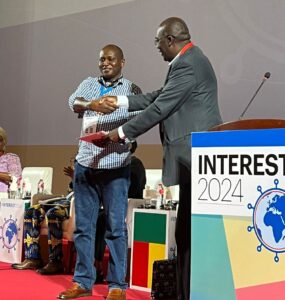The high burden of both communicable and non-communicable diseases in Africa is widely recognized. This has persisted because of the poor health systems and a mismatch between the huge burden of diseases and limited research activities to address them in many African countries. Health care researchers from within Africa, who are properly equipped with the necessary research and leadership skills are needed to drive the efforts to tackle these problems.
There have been previous efforts to address Africa’s population and public health problems using vertical programs and the provision of foreign training for African researchers. These efforts were not effective but resulted in stressing the already weak health systems. This was because the skills acquired could not adequately address the local health problems because of a near lack of knowledge about the dynamics of these health problems within the local context. There is therefore a need to provide appropriate responses to the health challenges in Africa using innovative, acceptable, and holistic approaches.
The role of a robust capacity-building program for African researchers in addressing these population health problems cannot be overemphasized; this is one of the responsibilities that the Consortium for Advanced Research and Training in Africa (CARTA) has taken up in the past decade. CARTA is a partnership involving nine African universities and research institutions that was established in 2009 with an aim to transform African universities into centers of academic and research excellence. One of CARTA’s strategies is to support upcoming academics in the partner universities to obtain world-class doctoral training in public and population health-related fields and to make them research and academic leaders who can influence policy change. This training is rolled out in form of a four-year doctoral fellowship program. The fellowship activities include attendance of four intensive and compulsory residential advanced seminars (which uses a multidisciplinary approach to teach research skills) where participatory and experiential learning take place. The fellowship also provides research items including a laptop with the necessary software, small research grant support, funding of internship, and conference attendance. There are also funds to support for a protected writing time where the fellows can focus on writing their doctoral manuscripts and thesis, in addition to paid tutor exchange programs where other academics temporarily take up the academic responsibilities of the fellows so that they can focus on their doctoral research.
In our recent publication, we as CARTA fellows highlighted the impact of CARTA fellowship on us as individuals and at institutional level. We also reflected on the impact on our doctoral research. All the 21 fellows who participated in this qualitative evaluation concluded that the CARTA fellowship was not only a well-organized and strategic in design, it has had major positive impacts on us and our institutions. The support and exposure of the fellowship significantly increased the quality of our doctoral research because of the new research skills, financial support and access to guidance by the advanced seminar facilitators. This encouraged fellows to conduct multidisciplinary research which is one of CARTA’s main thrusts. There also was a remarkable increase in the number of research grants won, peer-reviewed publications and presentations at scientific conferences by the fellows since we started the CARTA fellowship. Not only have we gained more confidence in research because of CARTA, but our teaching techniques have also improved. We have also started occupying academic and administrative leadership positions effectively in our home institutions, attributable to the leadership skills we obtained from the CARTA fellowship.
The CARTA experience has been a life-transforming one for us with a significant impact on our research, academic and individual lives. We deem the program impactful and suggest that similar programs on the continent can emulate the CARTA model to have far-reaching effects on individuals and institutions. This will vastly increase the research outcome generated within the continent to address the significant health problems therein. There will also be a ready pool of seasoned research leaders who can coordinate the required activities due to their leadership skills. This can also be a path to effectively reduce the brain drain that has plagued Africa as trained fellows will have a sense of fulfillment and relevance in their country homes when they become actively involved in the provision of evidence-based solutions to the public and population health problems that abound in Africa. Truly, the CARTA model is worth reproducing all through the African continent and beyond.




